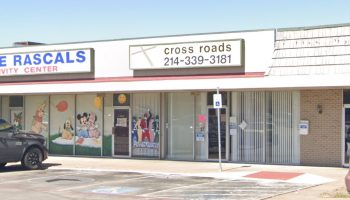About LUNA Recovery Services
Luna Recovery in Houston, Texas, is an accredited, certified center for integrated mental health care and addiction treatment services. Tanglewood Park and Memorial Park aren’t too far away from their locations. Both teens and adults can get treated here. Various insurance options are accepted.
Drug Detox Services in Houston
This center offers a full spectrum of care for substance use disorder (SUD) and mental health issues, including detox services.
Their withdrawal management program is ideal for anyone experiencing more serious SUD, as well as anyone seeking support as they begin navigating sobriety in the early stages of their recovery journey. Many individuals who begin with detox here continue with the center’s other treatment programs.
Participants can choose whether they’d prefer to engage in the detox program on an inpatient or outpatient basis. Detox generally lasts between 5-14 days, with treatment personalized based on participants’ unique needs and preferences lasting between 35-60 days. These are established from the get-go through an initial assessment.
The detox process is overseen by a multidisciplinary team of medical professionals. Due to the physical discomfort associated with this stage of recovery, the team may prescribe FDA-approved medications to help individuals manage their withdrawal symptoms and cravings, while also reducing the risk of relapse.
Residential Treatment, Outpatient & Beyond
Once detox is completed, clients will be guided towards the next appropriate stage of recovery. You can enroll in inpatient or various outpatient levels of care.
The center’s treatment approach combines a range of therapeutic methods, including cognitive (CBT) and dialectical behavior therapy (DBT), accelerated resolution therapy, neurotherapy, attachment-based therapy, and family systems therapy.
Given how much addiction can fracture and affect family relationships, family and marital therapy are also offered, alongside weekly family support meetings.
Levels of Care
-
Dual Diagnosis
Dual diagnosis programs address substance use disorders and co-occurring mental health conditions simultaneously. This integrated approach to care improves the likelihood of long term recovery and stability by addressing the root causes of addiction.
-
Aftercare
Aftercare programs provide ongoing support after you complete a rehab program. They may include several components to help you maintain sobriety including therapy, community support groups and relapse prevention strategies. This gives you a network of resources as you reintegrate into your daily life.
-
Sober Living
Sober living homes provide a supportive and substance free environment for you to live in as you overcome your addiction. Residents must follow house rules and support each other's recovery journeys. Sober living fosters accountability and stability during this critical phase of recovery.
-
PHP
Partial hospitalization programs provide comprehensive treatment in a structured setting during the day but allow you to return home at night. These programs offer a balance of inpatient and outpatient rehab and provide intensive support without full time residency.
-
Outpatient
In outpatient therapy, you’ll attend therapy sessions several times each week while living at home. This is ideal if you have a strong support system and a lower risk of relapse. Outpatient treatment offers flexibility to maintain work, school or family obligations.
-
Inpatient
Inpatient and residential programs provide round-the-clock medical and emotional support as you live at the treatment facility. This level of care may be recommended if you have severe addictions or mental health conditions since it removes outside distractions and allows you to focus solely on therapy.
Detox Service Setting
-
Outpatient Detox
Outpatient detox gives you access to medically supervised withdrawal services while still allowing you to live at home. You’ll attend a clinic for treatment and monitoring. This flexible option is suitable for those with mild to moderate withdrawal symptoms who have strong support systems.
-
MAT
Medication assisted treatment combines medication and counseling to manage withdrawal and reduce cravings for opioid and alcohol addiction. Medications may include methadone, buprenorphine or naltrexone. MAT is tailored to your needs so you can actively participate in your treatment journey.
-
Inpatient Detox
Inpatient detox occurs in a dedicated treatment facility. You’ll live there around the clock and receive intensive medical support and supervision to help manage your withdrawal symptoms. It is suitable for individuals with moderate to severe addictions as it ensures a stable detox environment.
Programs
-
Young Adult (18 - 25)
Young adult programs are designed for individuals who are transitioning into adulthood. Topics of discussion typically include identity, independence and peer relationships. Providers may also offer life skills training and career support.
-
LGBTQ Friendly
LGBTQ friendly programs create an inclusive and affirming space for recovery. Treatment is sensitive to issues like discrimination and stigma. You’ll receive support and therapy that respects and acknowledges your unique experiences.
-
Military / Veterans
Military and veteran programs offer specialized support for clients who served in the armed services. Programs focus on reintegration and healing within a structured and supportive environment that acknowledges the unique struggles of military life.
-
Seniors (65+)
Senior programs address the unique needs of older adults like chronic pain, grief and isolation. Programs include peer support and medical oversight for age related health concerns. The goal is to improve quality of life and promote sober aging.
Payment Options
- Private Insurance
Contact
702 Arlington Street
Houston, TX 77007





